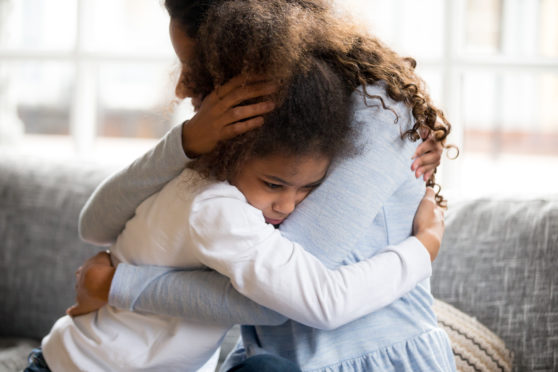
More than one in four adults are unsure where to seek help about suspected incidents of child abuse despite concerns about increased risk during lockdown, a survey suggests.
More adults are worried about children and young people suffering domestic abuse in lockdown than any other type of harm, according to a poll from the NSPCC.
The findings come amid growing concern that vulnerable children are at risk and are missing out on vital support during the Covid-19 crisis and school closures.
Child abuse could go unreported during lockdown despite increased risks, the charity has warned.
The survey of more than 2,000 adults in Britain found that 26% are not confident they would know where to seek help if they thought a child or young person was being abused or neglected.
When asked whether they were worried about young people suffering domestic abuse during the coronavirus lockdown, more than three in four (76%) said they had concerns.
A similar proportion had concerns about physical abuse (74%) and emotional abuse (73%) of children.
Schools, colleges and nurseries closed more than seven weeks ago due to the coronavirus outbreak, remaining open only for vulnerable youngsters and the children of key workers.
The latest Government figures show that only around 14% of vulnerable children, those with a social worker or an education, health and care plan in England, attended school on Thursday last week.
On the last day of the Easter break, when many schools were open, just 5% of these pupils attended.
Last month, the Local Government Association (LGA) warned that some councils are seeing up to a 50% decline in referrals of children amid a spike in domestic abuse during the coronavirus lockdown.
The NSPCC is urging anyone with worries about a child’s welfare to contact the NSPCC Helpline.
Kam Thandi, head of NSPCC Helpline, said: “It is terrible to think that cases of child abuse and neglect may be going unreported because people don’t know where to go to for help and advice.
“At the moment, we’re increasingly reliant on the public to come forward with their concerns, and if reports drop, we fear abusers will have free rein to harm children, both physically and emotionally.
“Even if you are not 100% sure, we urge any adult who is worried for the safety or wellbeing of a child to contact our helpline.”
Judith Blake, chairwoman of the LGA’s Children and Young People Board, said: “Councils are very concerned about falling referrals to children’s social care.
“They are working with their partners and communities to try to identify children who may be at risk and putting in place plans to ensure that if referrals spike when children return to school, they are able to ensure children and families get the right help quickly.”
She added: “The impact of the pandemic on some children will be far-reaching, and it will be essential that the right services are there to support them.”
– A total of 2,061 adults in England, Wales and Scotland were surveyed online between May 1 and May 4

Enjoy the convenience of having The Sunday Post delivered as a digital ePaper straight to your smartphone, tablet or computer.
Subscribe for only £5.49 a month and enjoy all the benefits of the printed paper as a digital replica.
Subscribe